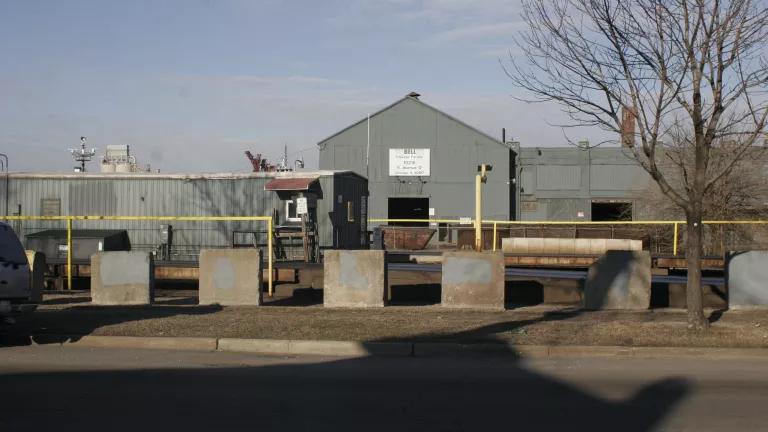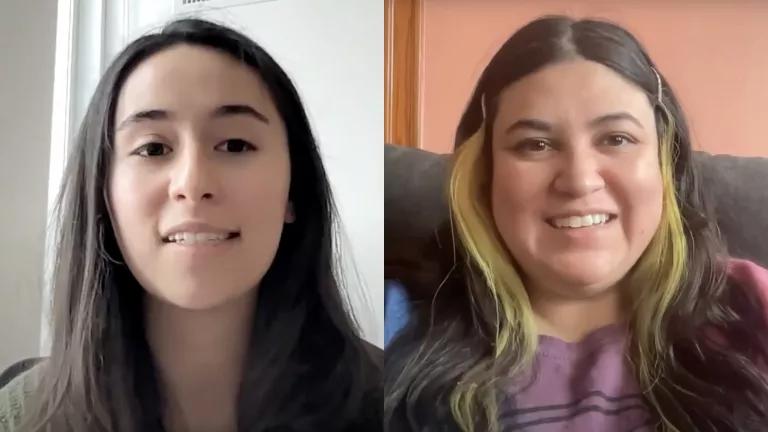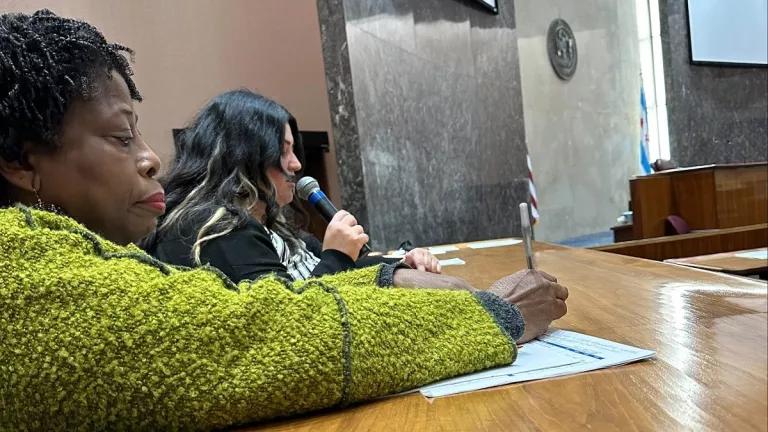Autism Awareness on Chicago’s Southeast Side
The Southeast Side has an abundance of toxic chemicals but a severe lack of health data.

Ramirez with her husband and son in their home
The Southeast Side has an abundance of toxic chemicals but a severe lack of health data.
Every day, I learn more about the toxic industry on Chicago’s Southeast Side that impacts the health of each of us who call this community home.
There’s the manganese stored along the banks of the Calumet River, a heavy metal used in steelmaking and other industrial processes that’s known to negatively impact brain function—impairing IQ, mental processing speed, and working memory. And then there’s the petroleum coke (petcoke), a carbon-laden material that resembles coal and can have hazardous health effects, as the small particles can be inhaled and harm the lungs and heart.
I started investigating this pollution in my backyard eight years ago when I was pregnant with my son, Evan, determined to protect him as best I could. Today, as an Autism mom, that determination has only grown stronger.
Parents in my neighborhood are worried about the impact these neurotoxins are having on our children. And with a severe lack of health data in environmental justice communities, we’ve taken matters into our own hands.
We recently invited University of Kentucky’s environmental health scientist Erin Haynes to Chicago to replicate her research on children and toxic chemicals and metals. After testing hundreds of children in Ohio, Haynes found a correlation between high manganese levels in the body and low IQ scores. I, along with several parents, enrolled my child in this study to learn more about functional skills and exposure to manganese.
Though the study wasn’t designed to establish links between autism and exposure, I know this will be a first step in bridging the gap by having more data to work with.
Every day, I worry about the effect manganese is having on Evan, and there’s nothing I won’t do to keep him safe. I dream for him to grow up breathing clean air, in a neighborhood that the city invests in and develops, not a toxic dumping ground. I don’t want him to grow up seeing the industrialization of his neighborhood the way I did.
Even though industry invades our community, it’s important to grow right where we are. That’s why I commemorated this Autism Awareness Month and Earth Day by handing out hundreds of planters and seeds to promote sensory gardens that stimulate all the senses: sight, touch, taste, scent, and sound, by using different plants and materials. These gardens allow those with autism to explore their senses in a safe and stimulating environment and help improve sensory development.
Kids on the Southeast Side of Chicago deserve the same opportunities as kids on the North Side. They don’t deserve to live in the toxic sacrifice zone that the city has allowed their community to become. They deserve to be able to do well at school without harmful metals impacting them or air pollution and petcoke particles making it harder to breathe. They deserve green spaces and sustainable development.
The recent win stopping General Iron, a massive car-shredding facility, from operating in our neighborhood has provided us with hope and momentum. And as Autism Awareness Month and Earth Month come to an end, our dedication to changing the future of our neighborhood must continue. We can only hope that city and state officials will be as invested as we are.






